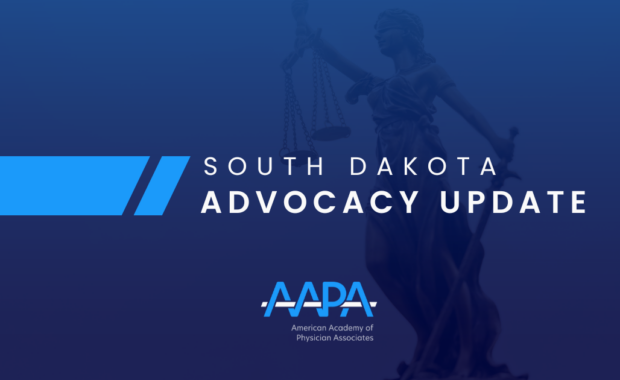A Winning Year for Texas PAs
PAs in Texas will see several favorable changes to their practice laws thanks to the enactment of legislative priorities advanced by the Texas Academy of PAs (TAPA). The new laws will give PAs additional signature authority and enable them to serve their communities through volunteerism. They will also result in greater autonomy for Texas’s PA Board. The enacted legislation includes:
- H.B. 2546, which allows PAs to sign workers’ compensation forms;
- H.B. 919, which allows PAs to sign death certificates if the PA was treating the decedent for the condition which contributed to his or her death or if the decedent was receiving hospice or palliative care;
- H.B. 1625, which, among other provisions: allows monthly meetings between prescribing PAs and physicians to be conducted via telecommunication; creates new whistleblower protections to protect PAs who refuse to commit or omit an action which is reportable to the PA Board; and further empowers the PA board to make and enforce rules regarding PA licensing requirements and license terms; and
- S.B. 1107, which removes the requirement that practitioners (including PAs) have an in-person meeting with a patient in order to provide healthcare services using telemedicine systems. The new law also includes the Texas PA Board in the telemedicine rulemaking process.
TAPA members lobbied for many of these provisions during their spring visit to the state capitol. AAPA supported TAPA’s efforts at the grassroots level through the use of e-mail alerts to Texas PAs, and AAPA’s communications staff worked to keep local media apprised of TAPA’s legislative agenda. For more information about these new laws or PA practice in Texas, please contact Erika Miller, COOA Director.
Thank you for reading AAPA’s News Central
You have 2 articles left this month. Create a free account to read more stories, or become a member for more access to exclusive benefits! Already have an account? Log in.




